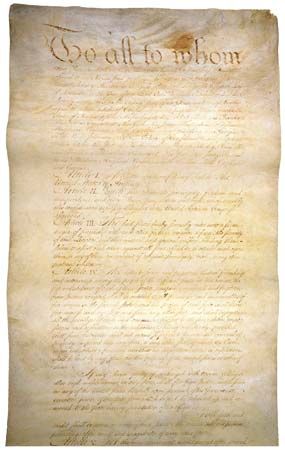confederation
- Related Topics:
- international relations
confederation, primarily any league or union of people or bodies of people. The term in modern political use is generally confined to a permanent union of sovereign states for certain common purposes—e.g., the German Confederation established by the Congress of Vienna in 1815.
The distinction between confederation and federation—words synonymous in their origin—has been developed in the political terminology of the United States. Until 1789 the U.S. was a confederation; then the word federation, or federal republic, was introduced as implying closer union. This distinction was emphasized during the American Civil War when the seceding states formed a confederation (Confederate States of America) in opposition to the Federal Union. Confederation thus came to mean a union of sovereign states in which the stress is laid on the autonomy of each constituent body, while federation implies a union of states in which the stress is laid on the supremacy of the common government. The distinction is, however, by no means universally observed. The variant confederacy, derived through the Anglo-French confederacie and meaning generally a league or union, whether of states or individuals, was applied in America in the sense of confederation to the seceding Southern states. In its political sense confederacy has generally come to mean rather a temporary league of independent states for certain purposes.











